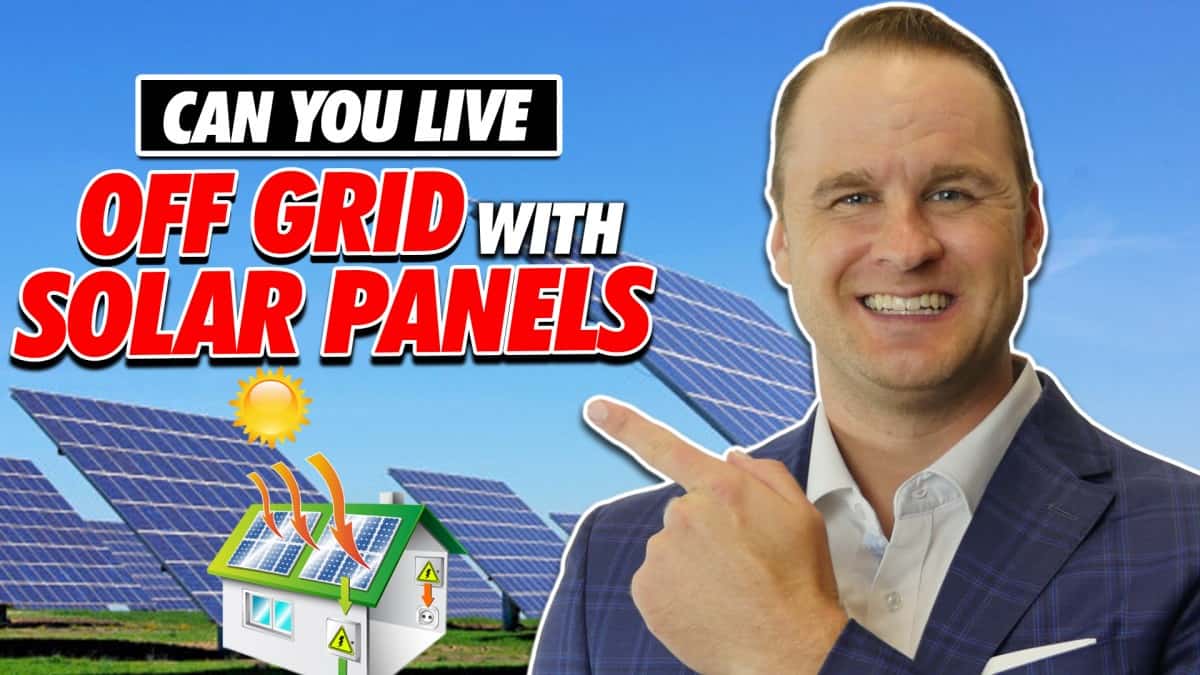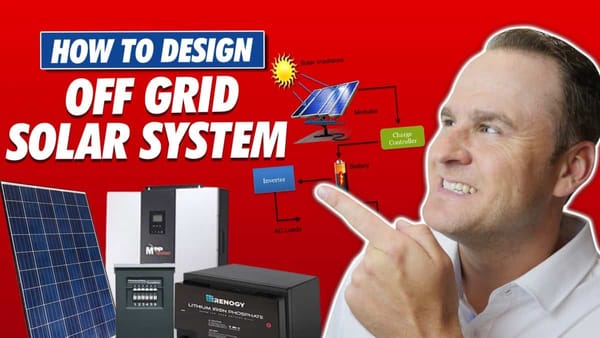Can You Live Off Grid With Solar Panels?

What does it mean to live off the grid with solar panels?
Living off-grid implies that your property is disconnected from public utilities or the power grid. The grid is a utility system that provides electricity for your home. Solar systems offer a good electricity alternative for you to live off the grid. There are numerous reasons why people use solar power as a means of going off the grid. Some use it to be more self-sufficient or to provide electricity to remote properties such as cabins, RV vans, mobile surveillance trailers, and so on.
Note that installing solar systems for your home does not imply that you have gone off the grid. Usually, most solar panel systems are not designed to be the sole source of electricity to a property. This is why most homes with solar systems still connect to their utility company.
Living Off-Grid
In an off-grid setting, the larger electric grid is unavailable when you need it. Whether at night when the panels aren’t generating electricity or during a sustained period of unclear weather.
Living off the grid with solar panels allows you to be your own utility company. You get to generate your electricity when the power grid is unavailable.
Off-grid electricity with solar panels is one of the most popular and accessible options. It is attractive for people who are eco-friendly and love to live independently. One great benefit of off-grid power systems is that you can enjoy electricity without having to go through the stress of running wires to remote properties affected by outages.
Can you live off-grid with solar panels? Depending on your budget and need, living off-grid comes with access to different types of available off-grid power. Every off-grid solar system depends on solar electricity stored in a battery bank. This article explains what it means to live off-grid, how to live off-grid, the available off-grid systems, and what you can do.
Grid-Tied vs Off-Grid
The difference between grid-tied and off-grid solar systems is how the electricity produced by the panels is stored.
In a grid-tied system, the electricity produced is sent to the power grid. You are then credited by the utility company for the electricity generated. This is similar to how you deposit money into a bank for use at a later time.
In an off-grid system, the electricity produced is stored in a battery bank. The battery bank serves as electricity storage to meet all your energy and power needs all through the year.
Overall, an off-grid solar system provides a cheaper alternative to laying power cables all the way to your remote properties.
What do you need to live off-grid with solar panels?
Going solar simply requires deep cycle batteries and a unique off-grid solar system.
- You need a battery bank to store electricity. This ensures that you always have access to electricity.
- You need a backup generator to charge your batteries and provide electricity to your home when the batteries are low or during sustained periods of cloudy weather.
Types of Off-Grid Solar Systems
There are many options to choose from when deciding to live off-grid with solar panels.
Off-Grid AC Solar Power Systems
This power system works by converting electrical current stored in DC batteries to AC using an inverter. Alternating Current is the most used form of electricity. It is used by any appliance that can be plugged into power.
This type of off-grid system is usually costlier than other options because of the expensive nature of the inverter. Also, they can power an extensive range of home appliances.
Off-Grid DC Solar Power Systems
This off-grid system is mostly used to power DC appliances, boats, RVs, rural telecommunications, farm appliances like livestock gates, and so on. They are useful when utility power is not available.
It is generally cheaper than its AC counterpart as it doesn’t need an inverter to convert the electricity generated by the solar panels to AC. However, Direct Current solar power systems cannot power standard AC appliances.
Despite their small ratings, off-grid DC solar power systems can power security, lighting, telecommunications, and surveillance systems in remote locations.
Off-grid hybrid systems provide another power alternative. This type of system combines off-grid sun with wind generators or gas. It is a less popular option.


